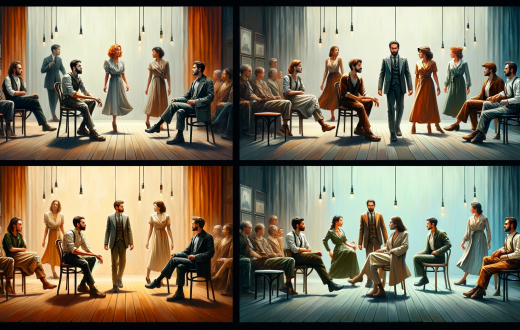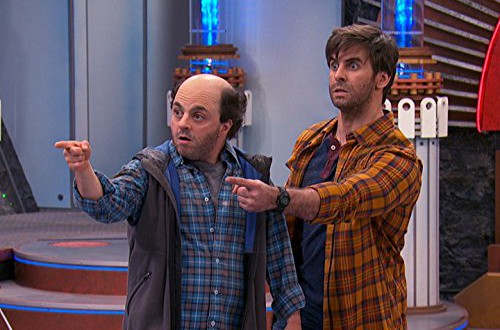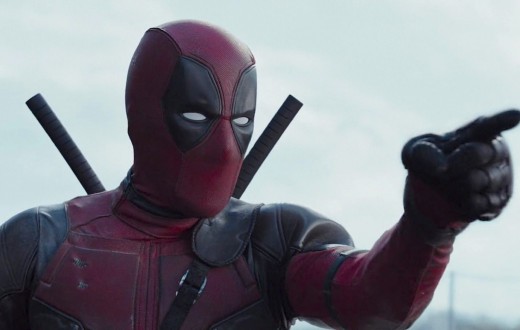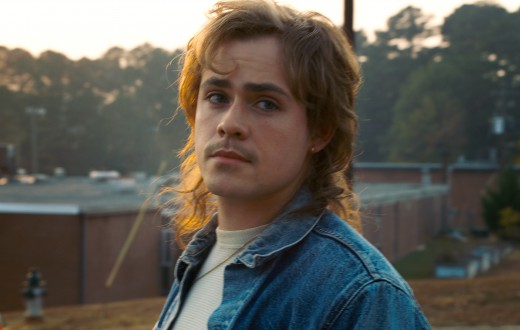For many actors, the spark of inspiration comes from a moment, a mentor, or even a movie. For Chris Greene, it began with stacks of VHS tapes and a dream to stand alongside the greats like Denzel Washington and Robert De Niro. What started as a fascination with storytelling transformed into a lifelong dedication to mastering the craft of acting. With over 20 years of experience, Chris has trained in a variety of techniques, worked with Hollywood’s elite, and embraced roles that challenge and inspire him.
In this interview, Chris opens up about his path from his first acting class to starring in major TV shows like Queen of the South and DAHMER, and how his passion for storytelling fuels his work both on and off the screen. Whether you’re a seasoned performer or just beginning your journey, his insights into character development, navigating auditions, and living a creative life offer invaluable lessons for any actor looking to thrive in the industry.
Join us as we dive into the life of Chris Greene—actor, mentor, and a true craftsman of the art.
What interested you in acting, and how did you get your start?
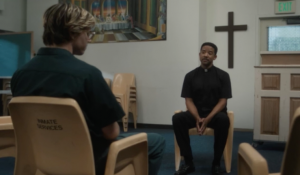 I have always been into watching films since I was about 10 years old. My pops had a great movie collection of vhs, yes I said vhs for your young bucks, and I would watch those good ole tapes whenever I wasn’t outside on the block with my friends. Would try to imagine what it would be like to be famous and respected like Denzel and Will, Pacino and DeNiro etc. The bug officially bit me when I was about 20 and attended some classes and auditions over at the North Carolina School of the arts. I was a featured background actor on the film Chicks 101 and that experience made me think “Hey maybe I will give this acting thing a shot!”. Been driving myself crazy ever since haha.
I have always been into watching films since I was about 10 years old. My pops had a great movie collection of vhs, yes I said vhs for your young bucks, and I would watch those good ole tapes whenever I wasn’t outside on the block with my friends. Would try to imagine what it would be like to be famous and respected like Denzel and Will, Pacino and DeNiro etc. The bug officially bit me when I was about 20 and attended some classes and auditions over at the North Carolina School of the arts. I was a featured background actor on the film Chicks 101 and that experience made me think “Hey maybe I will give this acting thing a shot!”. Been driving myself crazy ever since haha.
How did you train for your acting career?
I started off just studying films and the great actors of that time period and of the past. From there I took an auditioning workshop to understand that process and how we needed to go about booking roles as actors. After that it was an improv workshop so I could be better with listening and adapting on the fly. I soon realized that these workshops didn’t meant much without a foundation, so I asked more experienced senior Actors what to do because they were where I wanted to be and that is what lead me to studying as many of the systems, methods and techniques that I could through various credible coaches and studios including Meisner, Eric Morris, Uta Hagen, Strasberg, Chekov and Adler. I still study even to this day with Stella Adler’s technique being my focus because I find that script analysis and her teachings have served me the best thus far. I will still pull a tool from every form of study I have experienced because naturally each audition and role is different.
What techniques do you use today to get into your characters?
Again I always start with the script analysis because if you don’t know the story you are telling, then you can’t tell it. Once I have a handle on that, I create my character’s life through music, which was my background before acting. I assign a playlist for my character based on elements I find in the script about them and the breakdown that I have received. This helps me understand their moods, their movement and even how they speak.
Do you ever suggest ideas for your characters with the directors? If so, how does this usually come up, and how do these ideas take shape when filming?
All the time! Filmmaking and Episodic are a collaborative art form in my opinion. I am a professional at acting, just like the director is a professional at directing. We both have done the work on our perspective povs of the words within the script. We should be able to come to one another and bounce suggestions off of each other about the character based on what we have discovered and how we feel about the text. Stage I find to be slightly different as the character has been pretty much mapped out for you depending on the play. Yes there is going to be some room to add a little sauce here and there, but both actor and director have the same boundaries provided by the playwright.
How did you get your first talent agent? What led to getting this agent?
I got my 1st agent from the showcase at the end of the audition workshop I mentioned earlier.
Tell us how you ended up joining SAG-AFTRA, and how did it change your acting career?
I joined the union several years after being eligible through a SAG chevy commercial. I understood that at the time I was living in a right to work state so I would be limiting my income but I also knew that this was what I wanted to do with the rest of my life, so I wanted to be taken seriously by becoming a union member. It changed things for me knowing that at that particular time, jobs after joining the union would be better quality, have protections set in place for me as an actor and also give me access to other professional actors who could shed some light on how they progressed throughout their career by utilizing the union and all the perks that were offered.
What have been your favorite characters that you’ve played? Why?
Not to be sound cliché but villains are always fun to play so of course Bobby Leroux from Season 4 of Queen of the South was a good time. I also enjoyed Chaplin Adams from Ryan Murphy’s Monster series the DAHMER story. I am not a very religious person so to portray that accurately and honestly was a challenge, but a welcomed one.
Tell us how you normally audition these days. Are you doing a lot of self-taping and Zoom meetings? How do you feel about auditioning this way vs. a live audition?
All 1st round auditions are self-tape and callbacks via zoom and honestly I am not a fan. I understand the financial relief it provides both talent and casting, however I think when it comes to director/client sessions or screen testing actors those should always be in person. Energy is palpable and can not be felt as strongly through a screen as it can in person. Just my opinion.
Tell us about The Life Of An Actor Organization and how you approach coaching new actors.
The LoAA is all about learning, living and loving the lifestyle of a craftsman or woman when it comes to the art of acting. Not the glitz or glamour, truly going out and living a creative and curiosity filled life so that you can bring more truth to your work as a performer. It is also about educating those who are not in the business on how rough and intense this life of an actor can be. We are vessels to emotions that most people get to experience privately where as we have to put them on display for the world. I coach actors on just letting moments live and trusting themselves to deliver performance that they worked so hard on…least if they are my student they better have worked hard! I coach virtually and in person as well as travel to do workshops. Long as there are actors who want to tell stories in an honest way, I will continue to coach.
What’s your best advice for new actors?
Trust yourself, live your life and take in each moment, know your value and never let anyone dim your light once you have discovered your worth. Social Media is not a substitute for classes and theatre!!!! These last three are very important…SHOW UP ON TIME, KNOW YOUR LINES and HANG YOUR WARDROBE BACK UP! From my experience, you follow these steps and you will continue to work with amazing and professional creatives.
What projects are coming out soon, and what roles are you playing in them?
I will be appearing on Tyler Perry’s Assisted Living next season where I play the estranged son to one of the series regulars. I will also be appearing in the feature film SOVEREIGN which is based on a true story. I seem to get cast in a lot of biopics and stories based on real events when it comes to film. No complaints there though haha.
Links to follow Chris:
– IG @realchrisgreene,
– Threads @realchrisgreene
– facebook.com/chrisgreeneacts
– imdb.com



